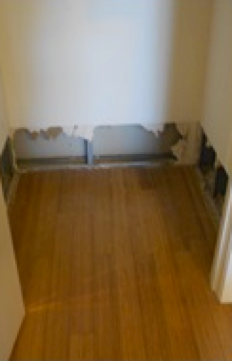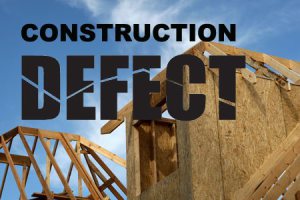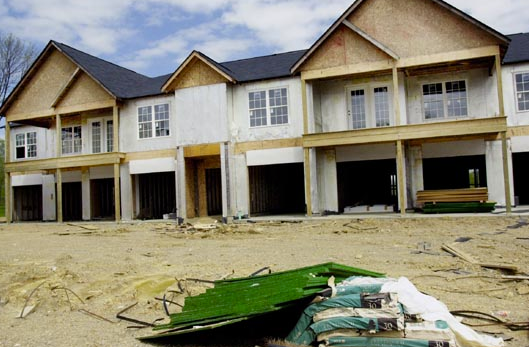Have you seen our videos from our recent event, “What’s New in the Davis-Stirling Act?” SwedelsonGottlieb Senior Partner Sandra Gottlieb explains it all for you – we’ve edited some video into sweet bite-sized sections. Follow the link below to access our videos and enjoy!
Continue reading
Liability and the Service-Oriented Manager/Association
By Sandra Gottlieb, Esq., Swedelson Gottlieb, Community Association Attorneys
 We recently attended a very informative program put on by Community Association Institute’s Greater Los Angeles Chapter titled The Service-Oriented Manager, and we were reflecting on all of the amazing services that many community managers provide for their community association owners and residents. Of course, as attorneys, we considered the potential liability to which some of these services can expose an association. For example, the speakers were talking about car washing, driver services and faxing documents for residents. And we questioned whether the manager (or the board for that matter) of an association that, for example, provides fax service for the residents, would allow the residents to receive faxes or other personal services without a signed Release and Indemnity Agreement.
We recently attended a very informative program put on by Community Association Institute’s Greater Los Angeles Chapter titled The Service-Oriented Manager, and we were reflecting on all of the amazing services that many community managers provide for their community association owners and residents. Of course, as attorneys, we considered the potential liability to which some of these services can expose an association. For example, the speakers were talking about car washing, driver services and faxing documents for residents. And we questioned whether the manager (or the board for that matter) of an association that, for example, provides fax service for the residents, would allow the residents to receive faxes or other personal services without a signed Release and Indemnity Agreement.
For example, with respect to faxing of documents, what if the association’s staff failed to deliver to a resident an important fax, and as a result, the resident claims they suffered damage? Or what about a staff member who fails to recognize that a fax did not go through or was sent to the wrong fax number? We trust you get the point, and this does not apply just to faxes.
Continue reading
Governor signs Senate Bill 298 Into Law; Unusual Legislation Giving Orange County (California) Community Associations The Ability To Contract For Services With Local Law Enforcement
By David Swedelson, Partner at SwedelsonGottlieb, Community Association Attorneys
 SB 298, which adds Section 53069.81 to the Government Code, is an unusual piece of legislation that provides community associations in one county of California with the ability to contract with local law enforcement agencies to provide Vehicle Code enforcement services at the association. We had not heard about this bill until now and do not know why it was limited to Orange County community associations as we know that associations in other parts of the State have a need for help with enforcement of the Vehicle Code on their private streets.
SB 298, which adds Section 53069.81 to the Government Code, is an unusual piece of legislation that provides community associations in one county of California with the ability to contract with local law enforcement agencies to provide Vehicle Code enforcement services at the association. We had not heard about this bill until now and do not know why it was limited to Orange County community associations as we know that associations in other parts of the State have a need for help with enforcement of the Vehicle Code on their private streets.
AB 298 authorizes the Board of Supervisors of the County of Orange, or the city council of a city within this county, to contract to provide supplemental law enforcement services to a homeowners’ association on an occasional or ongoing basis to enforce the Vehicle Code on a homeowners’ association’s privately owned and maintained road, as provided by Vehicle Code Section 21107.7.
Your HOA Needs To Involve Corporate Counsel In Lawsuit Handled By Insurance Defense Attorneys
By David C. Swedelson, Esq., Senior Partner at SwedelsonGottlieb, Condo Lawyers and HOA Attorneys
 Consider the following, a somewhat typical scenario: your association has been sued by an owner who claims the board failed to maintain the common area that resulted in water leaking into that homeowner’s unit, causing damage. The board tenders the claim to the association’s insurance carrier. The claim is not resolved, or it may not even be a covered claim under the association’s insurance policy, and the owner files a lawsuit. The lawsuit is tendered to the association’s insurance carrier with a request that the carrier defend the lawsuit and indemnify the association from any damages. The insurance carrier accepts the tender with limited reservations of rights (insurance carriers always reserve rights to deny coverage if it later determines or discovers there is no coverage).
Consider the following, a somewhat typical scenario: your association has been sued by an owner who claims the board failed to maintain the common area that resulted in water leaking into that homeowner’s unit, causing damage. The board tenders the claim to the association’s insurance carrier. The claim is not resolved, or it may not even be a covered claim under the association’s insurance policy, and the owner files a lawsuit. The lawsuit is tendered to the association’s insurance carrier with a request that the carrier defend the lawsuit and indemnify the association from any damages. The insurance carrier accepts the tender with limited reservations of rights (insurance carriers always reserve rights to deny coverage if it later determines or discovers there is no coverage).
What I have recited above is how most lawsuits get handled. Many boards expect that once they have tendered the claim to the insurance carrier, they can more or less forget about the claim or lawsuit. That would be a big mistake. In addition, many boards expect that the insurance company’s defense attorney is going to handle the matter and they don’t need to involve their association’s corporate counsel. That can also be a costly mistake.
While the association’s insurance carrier will, in most cases, pay the homeowner claimant for damages caused to the homeowner and/or their property, the insurance carrier will not (in most cases) pay the cost of repairing the common area (the leaking roof, deck, window, stucco, etc.) that is leaking or leaked. Many boards are shocked when they attend a mediation and hear from the insurance adjustor or claims representative, the judge or the mediator, or all three, telling the board that they have to pay for replacement of the windows, fixing the flashing, replacing the leaking pipes, the list goes on. And, of course, there may be mold or even asbestos that the carrier will likely not pay to abate.
Continue reading
SB 822 Signed Into Law, Confirming Managers Are Not “Contractors” or “Consultants”
By David Swedelson, Partner at SwedelsonGottlieb, Community Association Attorneys
 In 2012, many managers were concerned when the California legislature enacted AB 2237, amending Business and Professions (B&P) Code Section 7026.1 relating to contractors, which became effective at the beginning of this year. The amendments to AB 2237 mandated required “consultants” overseeing some construction projects to be licensed “contractors”. This caused some managers to be concerned as to whether they were considered “consultants” and therefore required to be licensed contractors when performing management services for condo and homeowner associations. Specifically, there was concern that doing typical management functions such as bid solicitation, bid management and/or oversight of common area maintenance projects would require a contractor’s license.
In 2012, many managers were concerned when the California legislature enacted AB 2237, amending Business and Professions (B&P) Code Section 7026.1 relating to contractors, which became effective at the beginning of this year. The amendments to AB 2237 mandated required “consultants” overseeing some construction projects to be licensed “contractors”. This caused some managers to be concerned as to whether they were considered “consultants” and therefore required to be licensed contractors when performing management services for condo and homeowner associations. Specifically, there was concern that doing typical management functions such as bid solicitation, bid management and/or oversight of common area maintenance projects would require a contractor’s license.
The legislative intent behind AB 2237, which was sponsored by the Contractors State License Board (CSLB), is to serve as a “valuable consumer protection measure,” meant to address situations where “people who don’t have a state contractor license call themselves construction consultants and encourage property owners to take on home improvement projects as the owner-builder. The so-called consultant collects a fee and many times leaves the homeowners with all of the project responsibility and liability… [AB 2237] will clearly define when someone is a contractor and discourage unscrupulous individuals from working under a fraudulently obtained owner-builder permit.” (CSLB Press Release – 12/31/12)
Continue reading
Southern California Management Company Owner and Employee Arrested — Embezzlement and Community Associations: Do Not Let It Happen To Your Association
By David Swedelson and Sandra Gottlieb, Senior Partners at SwedelsonGottlieb, Community Association Attorneys
 Unfortunately, there is fraud and embezzlement being committed at community associations throughout California as well as across the country every day. We have written about this issue in the past; follow this link to an article we wrote that describes how SwedelsonGottlieb recovered $500,000 for one association after it was discovered that the former manager had systematically looted the association’s reserve account. As is the case with most instances of embezzlement, it was preventable. Not one of the board members was reviewing the financial records, and they were not requiring that they be provided financial reports.
Unfortunately, there is fraud and embezzlement being committed at community associations throughout California as well as across the country every day. We have written about this issue in the past; follow this link to an article we wrote that describes how SwedelsonGottlieb recovered $500,000 for one association after it was discovered that the former manager had systematically looted the association’s reserve account. As is the case with most instances of embezzlement, it was preventable. Not one of the board members was reviewing the financial records, and they were not requiring that they be provided financial reports.
We were reminded about this issue by recent news stories involving the owner and an employee at a now defunct management company who were recently arrested with numerous charges pending. It is alleged that they together defrauded a large southern California homeowners association they managed and embezzled at least $900,000. And there is speculation that monies were taken from other community associations as well. Many of us in the community association industry heard about this story some time ago and were not surprised by the arrests. What surprised us was how long it took law enforcement authorities to act.
Continue reading
California Community Associations May Be Required to Provide the Owners Email Addresses As Part of An Owner’s Request for Owner Contact Information
By David Swedelson, Partner at SwedelsonGottlieb, Condo Lawyer and HOA Attorney

Disgruntled homeowner association members often want to share their “issues” with the other owners hoping to garner sympathy. They ask for the names and addresses for all owners, which the association will likely have to provide. But more and more, we are seeing owners asking to be provided other owners’ email addresses as well.
Neither the Davis-Stirling Act nor the Corporations Code provides much guidance to condo and homeowner associations regarding whether they are required to provide the email addresses of the members in response to another members’ request. However, a 2010 California appellate court case, Worldmark, the Club v. Wyndham Resort Development Corp. comes very close to answering that question.
Continue reading
Construction Defects and the SB800 Process
By David Swedelson, Partner at SwedelsonGottlieb, Condo Lawyer and HOA Attorney
 You may have heard an attorney refer to the “SB800 process” and not really understood what it was all about. SB800 refers to a California Senate Bill that became law about ten years ago, requiring and setting out a new procedure that had to be followed for construction defect claims and lawsuits against the builders and developers of condominium and homeowner associations. SB800, which was codified in Civil Code § 875 et seq., applies to homes and condominiums and provides the procedure for instituting construction defect claims for new residential property “sold” on or after January 1, 2003. Although the express legislative intent of SB800 was to improve standards and procedures for the administration of civil justice and early resolution of construction defects, according to the California Building Industry Association, SB800 would lead to increased production of affordable condominiums and townhouses. Not sure if that actually happened. But it is clear that a lot of condos have been built in the last ten years. This bill significantly changed the way defect cases were being handled.
You may have heard an attorney refer to the “SB800 process” and not really understood what it was all about. SB800 refers to a California Senate Bill that became law about ten years ago, requiring and setting out a new procedure that had to be followed for construction defect claims and lawsuits against the builders and developers of condominium and homeowner associations. SB800, which was codified in Civil Code § 875 et seq., applies to homes and condominiums and provides the procedure for instituting construction defect claims for new residential property “sold” on or after January 1, 2003. Although the express legislative intent of SB800 was to improve standards and procedures for the administration of civil justice and early resolution of construction defects, according to the California Building Industry Association, SB800 would lead to increased production of affordable condominiums and townhouses. Not sure if that actually happened. But it is clear that a lot of condos have been built in the last ten years. This bill significantly changed the way defect cases were being handled.
SwedelsonGottlieb has handled dozens of defect lawsuits over the last 25+ years. We have been fortunate enough to have recovered millions of dollars for our condo and HOA clients. I have recently had a number of clients contact the firm asking about defect claims, and it became apparent to me that they did not understand the process. I updated and revised an article we prepared back in or around 2003 when SB800 became law. The article explains the reasons for the changes and what SB800 requires as it relates to construction defect claims. Follow this link for the article.
Purchasers of Condominiums in San Diego’s Mixed Use Hard Rock Hotel May Not Sue for Securities Violations
By David Swedelson, Senior Partner SwedelsonGottlieb, Condo Lawyer and HOA Attorney
 The Court of Appeal recently came down with a decision regarding a lawsuit filed by several condominium owners who bought units in the Hard Rock Hotel San Diego, a mixed-use development with 420 condominium units. The Court of Appeal’s decision indicates that when these owners bought their units, they not only entered into purchase agreements, they also signed rental management agreements eight to fifteen months later. Does this mean that they get to sue for securities violations? Relating to a condo association? The following is a good definition of “Securities Fraud”.
The Court of Appeal recently came down with a decision regarding a lawsuit filed by several condominium owners who bought units in the Hard Rock Hotel San Diego, a mixed-use development with 420 condominium units. The Court of Appeal’s decision indicates that when these owners bought their units, they not only entered into purchase agreements, they also signed rental management agreements eight to fifteen months later. Does this mean that they get to sue for securities violations? Relating to a condo association? The following is a good definition of “Securities Fraud”.
Securities Fraud: A type of serious white-collar crime in which a person or company, such as a stockbroker, brokerage firm, corporation or investment bank, misrepresents information that investors use to make decisions. Securities Fraud can also be committed by independent individuals (such as by engaging in insider trading). The types of misrepresentation involved in this crime include providing false information, withholding key information, offering bad advice, and offering or acting on inside information.
Continue reading
Residential Real Estate Industry: Lessons From the Recession
By David Swedelson, Senior Partner at SwedelsonGottlieb, Community Association Attorneys, Condo Lawyer and HOA Attorney
 I recently read with interest an article prepared by an attorney that represents developers with the title “Residential Real Estate: Lessons From The Recession” written by attorney Nancy Scull, who represents developers. Her article commented on the fact that it was not that long ago that we were hearing new stories about “broken projects” and “fractured condominiums” which she described as the “remnants of the residential communities that fell victim to our most recent real estate recession.” It has been awhile since we heard about condominium or other homeowner association developments that were not completed and were abandoned by developers in the wake of the Great Recession. But as our economy and the real estate market continues to recover, the projects are being reevaluated, and new real estate development projects are being started. As Ms. Scull suggests, “with such positive news, it is easy to forget the problems and challenges that confronted residential developers only a few years ago. Real estate is cyclical, and the failure to learn from the residential housing economic downturn may only result in history repeating itself when the inevitable real estate ‘bubble’ bursts.”
I recently read with interest an article prepared by an attorney that represents developers with the title “Residential Real Estate: Lessons From The Recession” written by attorney Nancy Scull, who represents developers. Her article commented on the fact that it was not that long ago that we were hearing new stories about “broken projects” and “fractured condominiums” which she described as the “remnants of the residential communities that fell victim to our most recent real estate recession.” It has been awhile since we heard about condominium or other homeowner association developments that were not completed and were abandoned by developers in the wake of the Great Recession. But as our economy and the real estate market continues to recover, the projects are being reevaluated, and new real estate development projects are being started. As Ms. Scull suggests, “with such positive news, it is easy to forget the problems and challenges that confronted residential developers only a few years ago. Real estate is cyclical, and the failure to learn from the residential housing economic downturn may only result in history repeating itself when the inevitable real estate ‘bubble’ bursts.”
Continue reading




